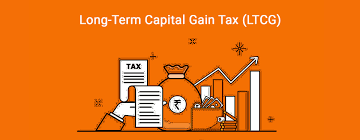Government Reverses Decision on LTCG Tax Indexation Benefits
Introduction
In a significant move impacting investors, the Indian government has reversed its earlier decision on the indexation benefits related to Long-Term Capital Gains (LTCG) tax. This decision has important implications for taxpayers and the investment community.
Details of the Reversal
The government’s recent announcement has reinstated indexation benefits for LTCG tax, which had been removed in a previous budget. Indexation benefits adjust the purchase price of an asset to account for inflation, thus reducing the taxable capital gains. This reinstatement is expected to provide considerable relief to long-term investors who had been adversely affected by the earlier decision.
Implications for Investors
The restoration of indexation benefits will likely encourage more investment in long-term assets, as it improves the after-tax returns for investors. The move is seen as a measure to boost investor confidence and promote stability in the financial markets. It is also expected to positively impact various sectors that rely heavily on long-term investments.
Government’s Rationale
The government’s decision to reverse its stance on LTCG tax indexation benefits comes in response to widespread criticism and concerns from various stakeholders. The initial removal of benefits had led to increased tax burdens on long-term capital gains, which many argued was detrimental to investors. The reversal is aimed at addressing these concerns and maintaining a balanced tax regime.

Why This News is Important
Impact on Investment Behavior
The reinstatement of indexation benefits for LTCG tax is crucial as it directly influences investment behavior. Investors are likely to feel more incentivized to hold onto their investments for longer periods, knowing that their tax liability will be adjusted for inflation. This can lead to a more stable and less volatile investment environment.
Boost to Market Confidence
By reversing the earlier decision, the government is sending a positive signal to the financial markets. It reassures investors that their concerns are being heard and addressed, which can enhance market confidence and attract both domestic and foreign investments.
Financial Planning Considerations
For individual investors and financial planners, this reversal means a need to revisit and possibly revise investment strategies. The indexation benefits make long-term investments more tax-efficient, prompting a reassessment of portfolio allocations and investment horizons.
Historical Context
Previous Policy on LTCG Tax
The policy regarding LTCG tax and indexation benefits has undergone several changes over the years. Initially, long-term capital gains were exempt from tax, but this was altered in recent budgets. The removal of indexation benefits in a previous budget marked a significant shift, leading to widespread debate and criticism.
Reversal Decision
The current reversal marks a return to a more investor-friendly tax regime. It reflects the government’s responsiveness to investor feedback and its commitment to ensuring a fair tax environment.
Key Takeaways from the Reversal of LTCG Tax Indexation Benefits
| Serial Number | Key Takeaway |
|---|---|
| 1 | The government has restored indexation benefits for LTCG tax, reversing an earlier decision. |
| 2 | Indexation benefits adjust the purchase price for inflation, reducing taxable gains. |
| 3 | The reversal is expected to boost investor confidence and long-term investments. |
| 4 | The move responds to criticism of the previous policy, aiming to balance the tax regime. |
| 5 | Investors and financial planners should review their strategies in light of the restored benefits. |
Important FAQs for Students from this News
1. What are Long-Term Capital Gains (LTCG) taxes?
Long-Term Capital Gains (LTCG) taxes are levies on profits earned from the sale of assets held for more than one year. These gains are usually taxed at a different rate compared to short-term capital gains, which are from assets held for less than a year.
2. What is indexation in the context of LTCG tax?
Indexation refers to adjusting the purchase price of an asset for inflation to determine the capital gain. This adjustment reduces the taxable capital gain, as it accounts for the erosion of the asset’s value due to inflation over time.
3. Why did the government reverse its decision on LTCG tax indexation benefits?
The government reversed its decision in response to criticism and concerns from investors who were adversely affected by the removal of indexation benefits. The reversal aims to restore investor confidence and encourage long-term investments.
4. How does the restoration of indexation benefits affect investors?
The restoration benefits investors by reducing their taxable capital gains, making long-term investments more tax-efficient. This can enhance after-tax returns and potentially increase investment in long-term assets.
5. What should investors do in light of the recent changes in LTCG tax policy?
Investors should review and potentially revise their investment strategies, considering the restored indexation benefits. This could involve reassessing portfolio allocations and investment horizons to optimize tax efficiency.
Some Important Current Affairs Links


















